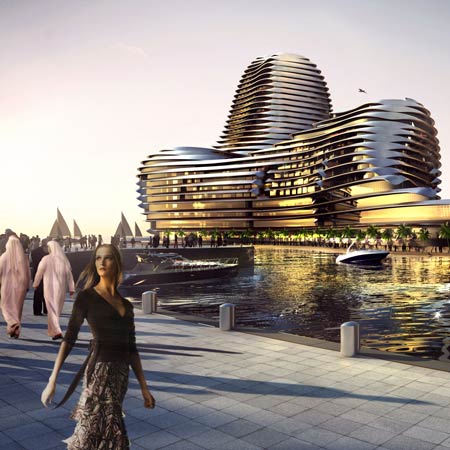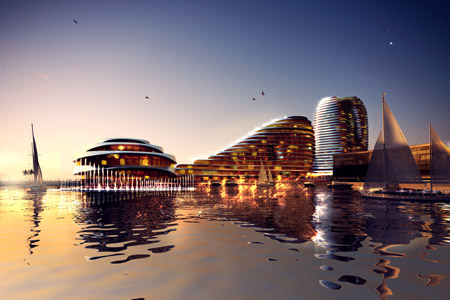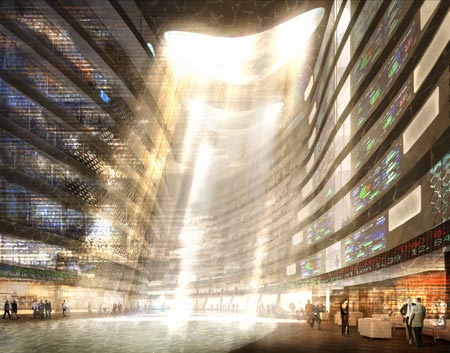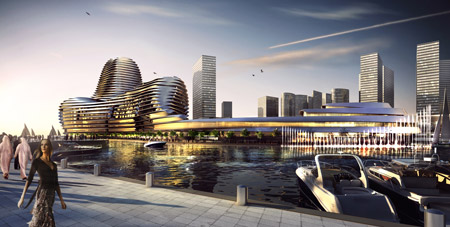
Abu Dhabi World Trade Center by Foster + Partners
Architects Foster + Partners have launched their design for Abu Dhabi World Trade Center, part of the Al Raha Beach development in Abu Dhabi.

The design was unveiled today at the MIPIM property fair in Cannes. Images: Foster + Partners.

Here's some info from Foster + Partners:
--
11 March 2008
Foster + Partners unveils scheme for Al Raha Beach at MIPIM

Foster + Partners reveals designs for Abu Dhabi World Trade Center, the principal building at Al Raha Beach. The design strategy is a highly specific response to the climate and topography of this dramatic coastal site and the building has evolved through a process of sophisticated environmental computer analysis. The resulting scheme provides shade while also admitting light; is cooled by a natural flow of air but is buffered against the strong desert wind; is asymmetrical and sculptural yet is environmentally and functionally coherent.
The site is in the precinct of Al Dana, forming the signature element of a new waterfront city east of Abu Dhabi. Located at the eastern end of the vast semi-circular marina of Al Raha Beach, the building extends into the centre of the marina to create a peninsula that completes the lively waterside promenade.
The Abu Dhabi World Trade Center is a multi-use building that brings together offices, apartments, a hotel and shops to encourage a constant pattern of economic and social activity throughout the day.
Wrapped in a shimmering skin, the building’s sinuous form rises up to a tower at its eastern tip. This distinctive envelope is a reactive louvered shading system that is angled to minimize solar gain depending on orientation. The main entrance to the south connects to a soaring central atrium, which is buffered from the climatic extremes by the apartments and offices that line the perimeter.
The form of the building is rooted in a sustainable environmental strategy that relies on a series of passive controls. To the south, the building is indented to reduce the external area most vulnerable to direct sunlight. The services and circulation cores occupy most of the remaining exposed areas. At ground level, the overhang of the roof creates a shaded walkway that wraps around the building, and the roof is streamlined according to the prevailing winds to encourage cooling air currents around and through the building.
The project is due to start on site this summer.